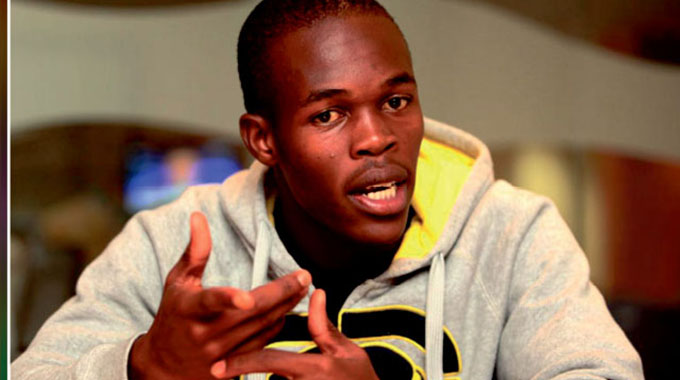Golden Girls, 40 years later

Tadious Manyepo Sports Reporter
THEY are the unlikeliest winners of an Olympic gold medal in history — having been told, just 35 days before the showcase, they would be part of the jamboree.
That was in 1980 and the Golden Girls of Zimbabwean sport were born in the Moscow sunshine at the 1980 Olympics.
This year marks 40 years since they transformed themselves into immortals.
“In what was surely one of the most bizarre starts to an Olympic campaign, the Zimbabwe women’s hockey team set off from Harare for the 1980 Moscow Games in an aircraft used to transport meat,’’ The Times of London noted.
“They had to cope with the overpowering stench, strapped in like paratroopers down either side, their luggage piled up in the middle.
“The Zimbabweans received their invitation 35 days before the opening ceremony and officials scrambled to select a squad.
“Their captain, Ann Grant, admitted that they were like a bunch of excited children when they first saw the Olympic Stadium.
“We had never seen an artificial pitch and didn’t have the right shoes to play on it because we’d only ever played on sunbaked grass pitches in Zimbabwe,” she recalled. “We had to rush out and buy them.’’
Two years ago, one of them, Liz Chase, died on May 9, after losing her battle with cancer at the age of 68.
But, Patricia Davies, a member of that team, still lives in Harare.
Now 63, Davies says that triumph started what has become a lifelong romance with hockey that still is alive to this day.
Despite being a senior director for a top company, Davies still coaches the Zimbabwe women’s team and also helps develop the game in several top schools.
“I love the game. It has been so long since we won that gold medal at the Olympics in Moscow,’’ she told The Saturday Herald.
“The team was so professional. We surprised the world and it is that feeling, which we still share together with those who are still around, that made me decide against turning my back on the game.
“I still like new challenges. There are a lot of problems, but I make sure the players I coach are always fit, just to keep myself fit as well . . .”
That the team won the country’s first medal, of any colour at the first Olympics to include women’s field hockey competition, makes Davies proud.
It was their first experience with playing on an artificial surface, but they still beat the favourites and hosts, USSR, Poland and Austria, who were powerhouses of the game.
Zimbabwe’s men’s and women’s field hockey teams were invited for the Olympics, just 35 days before the Games, to fill in the gaps opened by the withdrawal of some teams.
With very little time to organise teams, using players who had rarely played together, the country decided to send only the women’s team.
That side, at least, had two players who had some international experience.
Player-coach Anthea Stewart had once played for South Africa and retired from the game around 1974.
Chase also gave Zimbabwe some depth while the likes of Davies, as well as sisters Sandy Chick and Sonia Robertson, fused into what became a winning side.
It’s a measure of the impact of their success story that Chase’s death was recorded in the Hockey Museum.
The 1980 Olympics were first to feature women’s hockey, and the first to include Zimbabwe under her name, as the country had been barred from the last three Olympics for political reasons.
The women’s hockey matches, held between July 25 and 31, 1980, were all played on artificial turf, which none of the Zimbabwean team members had ever seen.
They had also never played together, until that month.
After beating Poland and the USSR and drawing with Czechoslovakia and India, the Zimbabweans won the competition on the final day with a 4–1 victory over Austria.
Dubbed the Golden Girls by the country’s media, they were met by cheering crowds on their return home, and were national celebrities.
The country did not win another Olympic medal until 2004 when swimming icon, Kirsty Coventry, powered to glory in Athens, Greece.
“I do not really like to talk about myself as if I was not a team player. Hockey is a team game. I cannot say me, like it is in other individual sports.
“It was a great effort.
“We had the determination, the enthusiasm and the power to grind results.
“I still remember the competition took a round-robin format and we won four games and drew two on our way to the podium. The team had pure talent in their ranks.”
Davies, though, tried bowls, her other passion, for 10 years well after she had retired from hockey.
“For 10 years, I was out of the game doing something else.
“I do a lot of things, running the company and several other things, but hockey is in my DNA.
“I had to come back and now I am just loving it . . .”
She said Zimbabwe would have been successful in the sport had the country not suffered from a wave of talent drain.
Only six out of the 16-member squad of the Golden Girls are still in Zimbabwe.
1980 Zimbabwe women’s national field hockey team
Arlene Boxall (goalkeeper), Sarah English (goalkeepe), Liz Chase (vice-captain, forward), Sandra Chick (forward), Gillian Cowley (various), Patricia Davies (various), Maureen George (defender), Ann Grant (captain, sweeper), Susan Huggett (various), Patricia McKillop (midfielder), Brenda Phillips (midfielder), Christine Prinsloo (midfielder), Sonia Robertson (defender), Anthea Stewart (player-coach, various), Helen Volk (various), Linda Watson (various).









Comments